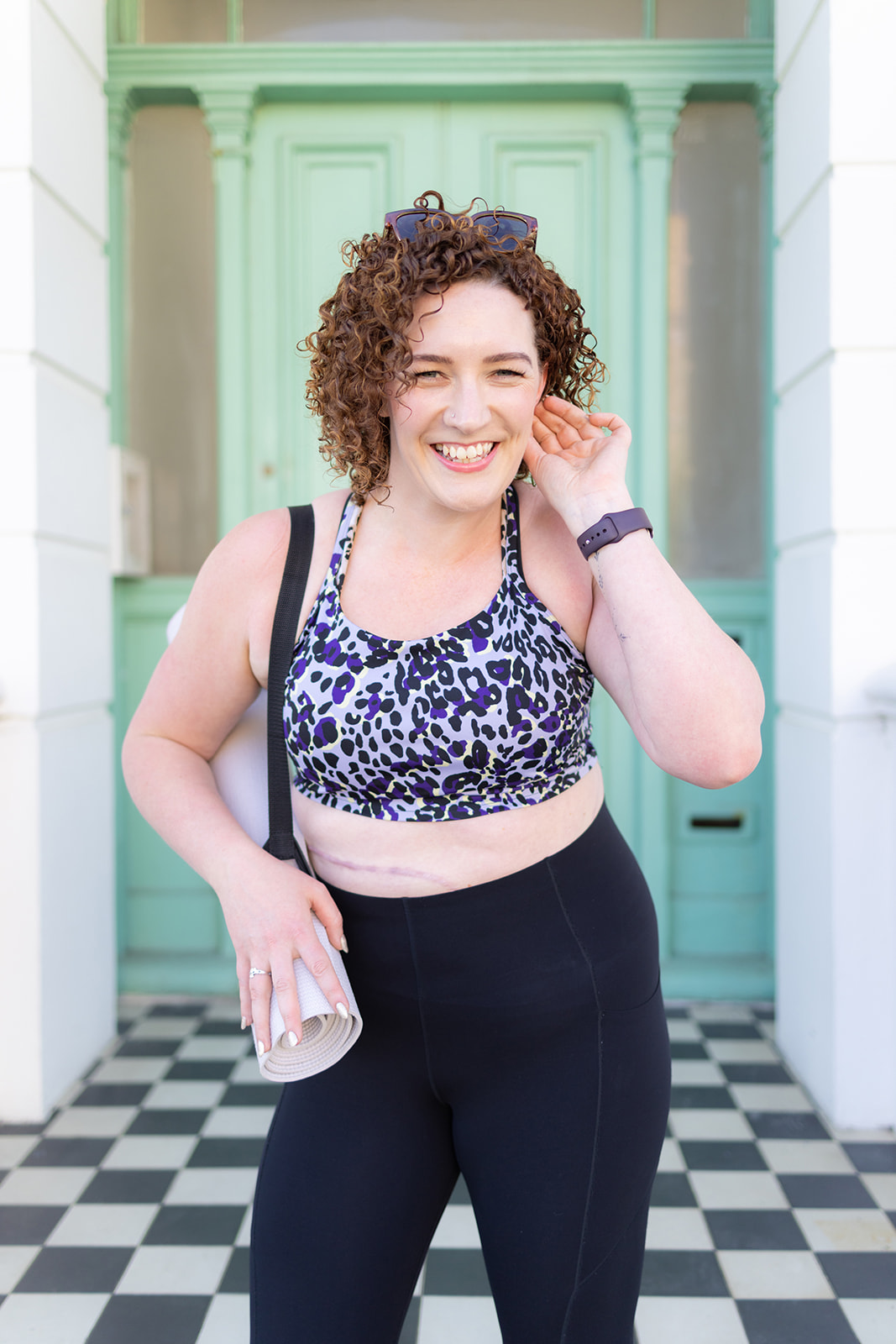It seems surreal that it’s two years since I spent many hours on Zoom, lots more reading, and several panicking about exams and assessments. Receiving my cancer exercise specialist certification was the realisation of a goal set only a year previously, with no personal training expertise to my name. So I think a bit of reflection is in order…
Cancer patients will find you
From sliding into my DMs to spotting my business card in a coffee shop, I’ve had a variety of ways in which people have come across my work! I’m always thrilled when someone else recommends my services, which has happened too. I’ve also been told that my own story has really helped – my cancer clients appreciate my candour, which tells me that it’s worth continuing to share. Cancer is an incredibly varied experience, so many results aren’t promised. There are lots of times when we have to just try things and see how they go. But there are also plenty of things that we can guess fairly safely will help. I’m really happy to have seen some of my clients flourish when they’ve started exercising – it made the desperation of struggling to learn various terminology worth it!
There are still lots of things you don’t know
The qualification I took focuses heavily on the most commonly occurring cancers, and it is pretty thorough in that regard. It’s a sensible approach, and helps to give you a fantastic grounding in the basics, and things you are likeliest to see. So just my luck that two of my first three cancer clients had the same cancer… that wasn’t in the textbook I’d been given.
I leaned really hard on the theory underpinning the training, and trusted my clients to know their treatment, side effects and bodies. And I learned a whole lot more besides. It turned out to be a good thing in that sense.
After my training, I’ve continued reading around the subject too. I’ve picked up more books on cancer, scouring sections on exercise particularly thoroughly, and kept seeking out new studies and further information as much as possible. This year, I attended a professional study day at the hospital which treated me, and this reminded me that it’s an exciting time for exercise oncology – the academic work is being done, and hopefully filtering through.
People die
I was less prepared for this than I might’ve been, and I think that’s because, for the most part, the focus with exercise is on being well.
Sometimes, disease is just too advanced. Or bodies just don’t respond to treatment in the way we hope.
I’ve learned to cope in my own way. I’ve realised that the best thing for me is to be grateful for having been asked to help. Be proud of what I did manage to do in the time I had with someone. Remember their name, and the people they loved, and be grateful for them too…
People live (and you get to help them)
And then to move forward and help the next person. Because that’s what I’m here to do – help. It’s about making the most of my privileged position.
My favourite thing to see is improvement in confidence, and someone’s use of their body. Reduction in range of movement is a very common side effect of cancer treatment, and to see people redevelop the ability to reach above their head again is such an underrated accomplishment. Witnessing their energy levels improve is also a huge win in my opinion, and I’ve even had a client appreciate that sensation has returned in their extremities following taking on a fitness routine.
So whilst there are difficulties, there are also moments of brilliance. None of these people has yet asked me to help them climb a literal mountain or complete a marathon – they’ve pretty much already done that by surviving treatment and the emotional overhaul of cancer so far. When the medics have preserved their life, I get to help them be more comfortable with living it. And that’s a very good day at work.
